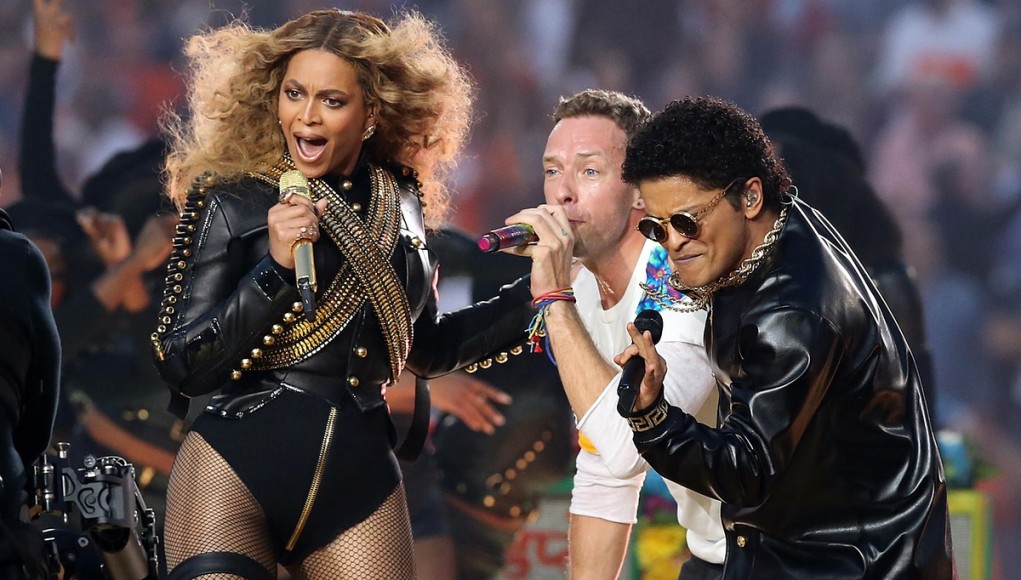So, on the night before her Super Bowl 50 halftime performance, singer Beyoncé dropped her song, “Formation” that stands as an ode to her black heritage. Throughout the song, Beyoncé makes unashamedly black cultural references. She talks about her father from Alabama, her mother from Louisiana teaming up to create her, “a Texas ‘Bama.” She claps back at those who think she should “tame” her baby daughter’s natural hair. She sings the praises of collard greens and cornbread. She refers to herself as someone who has “hot sauce in her bag, swag!”
But, in addition to the cultural references sprinkled throughout the song, the imagery of the accompanying video is evocative and provocative. She offers up images of New Orleans destroyed by Hurricane Katrina, a Black Mardi Gras Indian, Southern University clad band members, a Black church service, and what might be a second line. Near the end of the video we see graffiti on the side of a building that says, “Stop shooting us!”
I saw the video the Friday when the song dropped so I was anxious to see if she would include it in her Super Bowl performance. If she did, it would require some major editing to be acceptable for a primetime audience. And, she did just that. Her performance stayed away from the obscenity and instead capitalized on the star’s obvious sexuality. But that sexuality came with a twist. She and her dancers wore militaristic costumes that harkened back to the Black Panthers and in giving a nod to the Panthers Beyoncé suddenly became an undesirable. Instead of acknowledging the marketing genius of the performer — drops a song and video the day before the Super Bowl, gives an electrifying performance at the Super Bowl (that, in my estimation saved Coldplay’s anemic performance), and announces her next national tour — white folks are mad that she references her heritage and the historical contribution of the Black Panthers.
My favorite “commentary” on the response to Beyoncé was the Saturday Night Live skit (above) called “The Day Beyoncé turned Black” that describes the panic that came over the White community because Beyoncé acknowledged her blackness. Later in the week, we began to see the negative response of various police departments (for example, Miami and Tampa) who urged their members not to serve as security guards for the singer because her message was “anti-police.”
Let’s be clear. mega-stars always hire a local security force for their concerts. Those security forces are often comprised of off-duty police officers and security guards. Working the concerts puts money in the pockets of the individuals who take the jobs. Failure to work the concert only provides job opportunities for additional people. The local police forces will still need to insure the safety of the public concerning possible traffic congestion in the streets surrounding the venues. After all, they are supposed to “serve and protect!”
Interesting, police departments advocating boycotting Beyoncé regularly found their way to NWA concerts where the group from Compton openly defied the cops in songs like “F*%k the Police” and “9-1-1 is a joke.” The tensions that exist between African Americans and police departments are not a result of Beyoncé dropping a new song. Evoking the Black Panthers in Black History Month when filmmaker Stanley Nelson, Jr. debuts his documentary on the Black Panthers was another example of the artist’s marketing genius.
I would never look to Beyoncé to lead a movement or educate my children. However, the fact that she has taken up a current, relevant topic in her latest song makes me hopeful that our art is starting to be about more than drinking vodka, getting high, and having sex with any and everybody. When a major star like Queen Bey takes on a serious topic that impacts our community, I appreciate it — and for that I blame Kendrick Lamar!










